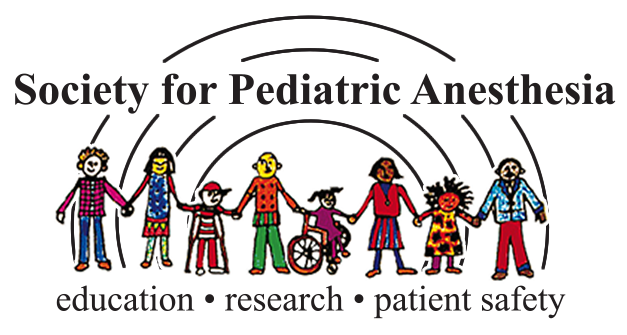An institution is not required to choose between mentoring and coaching. Each one enhances your program and the ability of its members to contribute to your institutions’ goals. These articles explain how mentoring and coaching can fulfill the expectations of individuals, while simultaneously accomplishing the institutions’ employee development and succession planning goals.
Berenstain Physician Coaching
The practice of anesthesiology requires comprehensive medical knowledge, a robustclinical skill set, and the ability to navigate complex social situations on a daily basis. While medical school and residency training serve as preparation for the first two, training in emotional intelligence, conflict management, negotiation skills, and leadership is often deficient or nonexistent. Additionally, professional development is not always adequately emphasized, resulting in a lack of professional fulfillment for many
Coaching for the pediatric anesthesiologist: Becoming our best selves
Anesthesiologists must balance demanding clinical workloads with career development goals. Leadership, conflict management, and other skills can improve medical outcomes, reduce stress at work, and increase career satisfaction
Why Mentoring Matters, and How to Get Started – The New York Times
“It’s very much reciprocal, and there’s so much to be learned from the younger generation. Both sides are meeting different types of people, understanding different experiences, and really growing their own network of young, up-and-coming professionals to be able to support or to be able to offer opportunities.”
-Jenni Luke, Chief Executive of the National Teen Mentorship Organization StepUp
Women Mentoring Women in Academic Medicine: Pathways to Success
While a career in academic medicine can be difficult to navigate, mentorship by an experienced guide has been shown to help career development by improving confidence in the workplace and helping to lower barriers to academic success.
How to Cold Call Your Future Mentor
You can get a meeting with an influential person you have never met by doing research ahead of time, showing hustle and remembering to ask, ‘What can I do for you in return?’
Women Mentoring Women in Academic Medicine: Pathways to Success
Weavind L, McGrane TJ. Women Mentoring Women in Academic Medicine: Pathways to Success. International Anesthesiology Clinics 2018; 56(3):110-120.
Gender equality in academic medicine remains an elusive but crucial goal for women in medicine today. Mentorship of an experienced teacher / guide has been shown to facilitate career development, improve confidence and personal satisfaction, lower barriers and provide a road map to personal achievement. The authors review the 3 main types of mentorship relationships, discuss the attributes of a good mentor and a good mentee. They propose an approach to building a successful mentoring program for female faculty and include a mentorship agreement. The article is well written, practical and certainly worth a read if you are looking for or already engaged in a mentoring relationship.
Making the Most of Mentors: A Guide For Mentees
Zerzan JT, Hess R, Schur E, Phillips R, Rigottia N. Making the most of Mentors: A Guide for Mentees. Academic Medicine 2009; 84(1), 14-144
Effective Mentorship is likely one of the most important determinants of success in academic medicine and research. This article gives guidance specifically to mentees on forging these critically important relationships. “Managing up” requires the mentee to take responsibility for his/her part in the collaborative alliance and to be the leader in the relationship by guiding and facilitating the mentor’s efforts to create a mutually satisfying and productive relationship. Specific and very practical suggestions including a checklist for mentees empower the mentee to develop mentoring relationship that really work.
The 2018 Joseph W St. Geme, Jr. Leadership Award Address: Reflections on Mentorship
Schuster MA. The 2018 Joseph W. St. Geme, Jr. Leadership Award Address: Reflections on Mentorship. Pediatrics 2019; 143(2):e20182957
Mentors matter. Research supports that statement. Studies have shown that physicians who have been mentored are more productive, more likely to receive grants and publish, more likely to be promoted and tend to have greater career satisfaction. The author recommends 6 characteristics to look for in a mentor. A good mentor is someone you feel comfortable with, looks out for your best interests, is accessible, direct, forgiving and doesn’t have to be perfect, understands you and your needs. The author makes a strong case for turning mentorship into an expected and routine part of academic medicine and suggests 6 action items for encouraging, supporting and reward mentorship.
Great Mentors Focus on the Whole Person, Not Just Their Career
Rick Woolworth
Aspiring leaders need more and better mentoring than they’re getting today. More than 75% of professional men and women want a mentor, only 37% have one. Current mentors are too narrowly focused on career advancement and thereby limit their impact. Mentoring the whole person extends beyond career to include discussions about behavior, values, relationships, parenting, finances and even spiritual life. The author believes strongly that this more holistic approach is dramatically more effective in helping people fulfill their true potential. He offers 6 practices for holistic mentoring.
How doctors can be better mentors
Sanjay Saint, M.D. Vineet Chopra, MD
In the same way that physicians have an ethical duty to act in the best interests of their patients, mentors have a similar duty towards their mentees. Practicing mindfulness – being patient, focused on the moment, accepting events as they unfold – is an important skill for effective mentoring. Incorporating mindfulness allows the mentor to focus on what is best for the mentee and his or her career. The authors offer four guiding principles for mindfulness in the mentoring relationship: be available, know your role, try to be objective, put yourself in their shoes. Being mindful as a mentor is a foundational practice that unlocks successful interactions with mentees.
Articles reviewed by Eric Wittkugel, MD April 11, 2020
Leadership | Professional Development Coach Hudson Certified Coach



 Supported By The Society for Pediatric Anesthesia
Supported By The Society for Pediatric Anesthesia